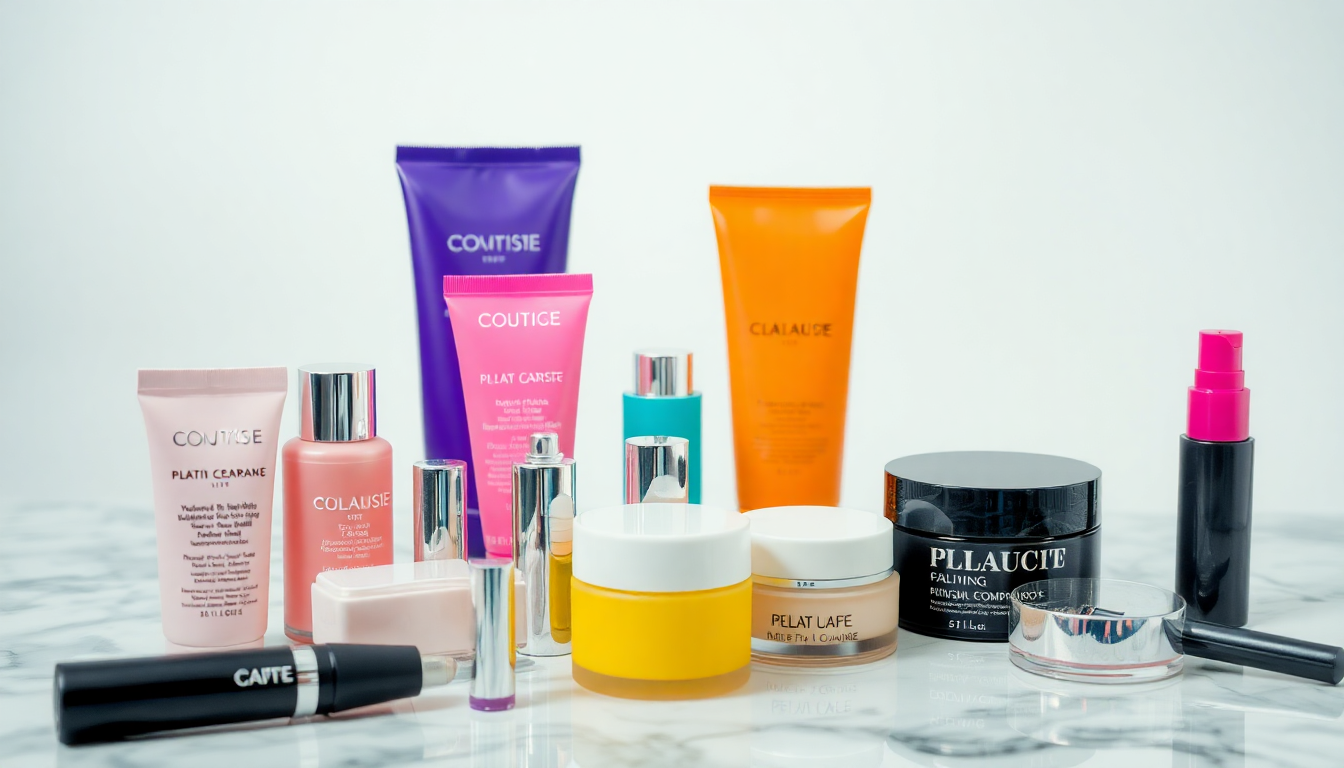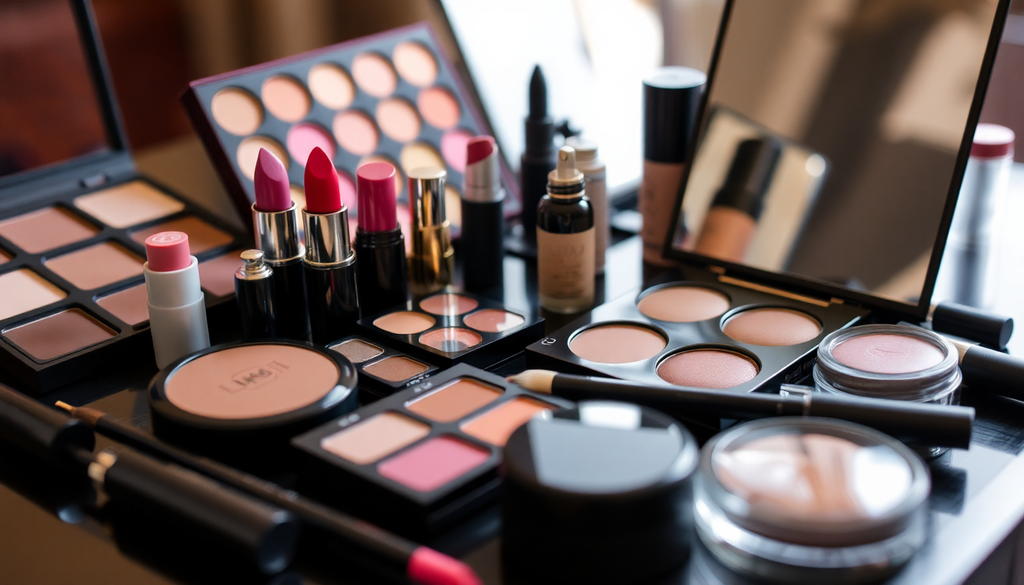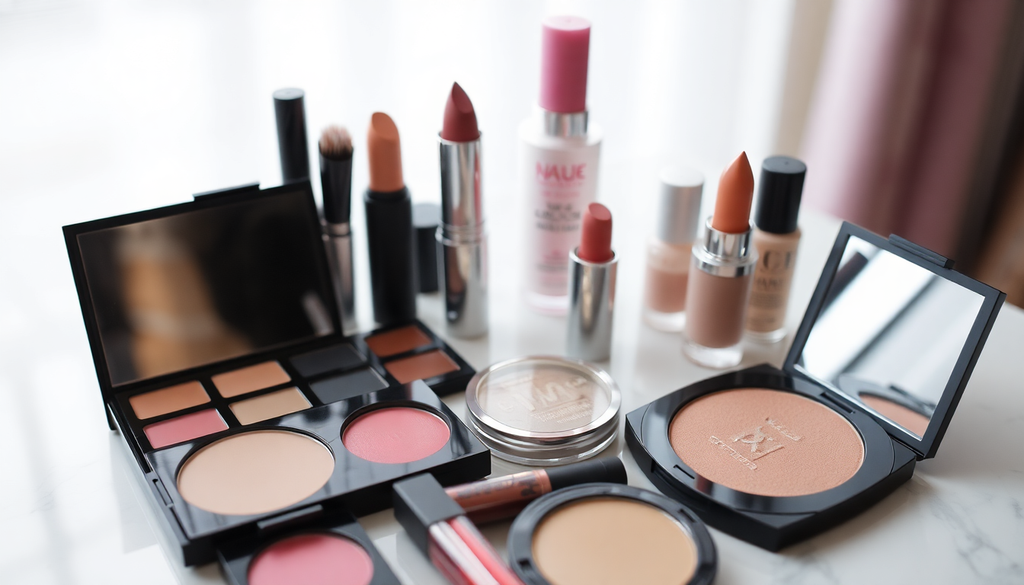
Navigating the New Zealand Makeup Business: Essential Steps for Setting Up Your Private Label Cosmetics Brand in 2025
Introduction
Starting a private label cosmetics brand in New Zealand can be an exciting venture in 2025. With the global beauty industry continuously evolving, it's essential to stay informed about the latest trends, regulations, and marketing strategies. This comprehensive guide will walk you through the essential steps to successfully launch your makeup brand in New Zealand, from regulation compliance to marketing techniques.
1. Understanding New Zealand's Cosmetics Regulation
Before diving into the cosmetics business, it's crucial to understand the regulations governing the industry in New Zealand. Familiarizing yourself with the following aspects will help you avoid legal issues and ensure your products are safe for consumers:
- Cosmetics Standard 2009: This standard outlines the safety and labeling requirements for cosmetics sold in New Zealand. It covers everything from ingredient safety to proper product labeling.
- Ingredient Restrictions: Certain ingredients are prohibited or restricted in cosmetics. Ensure that your product formulations comply with this list to avoid penalties.
- Labeling Requirements: Labels must include essential information such as ingredients, product purpose, directions for use, and warnings, if applicable. This not only keeps you compliant but also builds trust with consumers.
- Registration with Medsafe: If your cosmetics contain therapeutic claims, you may need to register with Medsafe, New Zealand's medicines and medical devices regulator.
2. Sourcing Your Products
Once you have a solid understanding of the regulations, the next step is sourcing your makeup products. Here’s how to approach this:
- Finding a Manufacturer: Look for reputable manufacturers that specialize in private label cosmetics. Conduct thorough research and check their credentials. Consider visiting their facilities if possible to ensure they adhere to good manufacturing practices (GMP).
- Product Development: Collaborate with your manufacturer to develop unique formulations that align with your brand vision. Don’t hesitate to ask for samples and conduct user testing to refine your products.
- Quality Control: Implement a quality control process to maintain high standards for your products. Regularly audit your manufacturer and consider third-party testing to validate product safety and efficacy.
- Choosing Ingredients Wisely: Focus on sourcing high-quality, ethically produced ingredients. This not only enhances product quality but also resonates with the growing consumer preference for sustainable and cruelty-free cosmetics.
3. Registering Your Business
To legally operate in New Zealand, you need to register your business. Follow these steps to ensure you’re compliant:
- Choose a Business Structure: Decide whether you want to operate as a sole trader, partnership, or company. Each structure has its own legal and tax implications.
- Register Your Business Name: Ensure your business name is unique and reflects your brand. Conduct a name search on the New Zealand Companies Office website.
- Obtain Necessary Licenses: Depending on your business model, you may need specific licenses or permits. Check with local councils and industry bodies to ensure you're fully compliant.
- Tax Registration: Register for Goods and Services Tax (GST) if your turnover exceeds the threshold. This will allow you to charge GST on your products and claim back GST on your purchases.
4. Setting Up an Online Store
In today’s digital age, having an online presence is essential for any business. Here’s how to get started:
- Select an E-commerce Platform: Choose a platform that suits your needs. Popular options include Shopify, WooCommerce, and Magento. Consider factors such as ease of use, payment options, and scalability.
- Design Your Website: Ensure your website is user-friendly, visually appealing, and mobile-responsive. Invest in professional web design to create a strong brand image.
- Implement Payment Gateways: Offer multiple payment options to cater to diverse customer preferences, including credit cards, PayPal, and Afterpay.
- SEO Optimization: Optimize your website for search engines to increase visibility. Use relevant keywords, create quality content, and ensure fast loading times.
- Product Descriptions and Imagery: Write compelling product descriptions and use high-quality images to attract and convert visitors.
5. Marketing Your Makeup Brand
Effective marketing strategies are crucial for brand visibility and sales. Consider the following tactics:
- Social Media Marketing: Leverage platforms like Instagram, TikTok, and Facebook to showcase your products and engage with your audience. Use storytelling to connect emotionally with your customers.
- Influencer Collaborations: Partner with beauty influencers to reach a broader audience and build credibility. Choose influencers whose values align with your brand for an authentic partnership.
- Email Marketing: Create a mailing list to keep customers informed about new products, promotions, and brand updates. Use personalized content to build stronger relationships.
- Content Marketing: Start a blog or video series to educate your audience about makeup application techniques, trends, and product benefits. This positions you as an authority in the industry.
- Online Advertising: Invest in online advertising through Google Ads or social media ads to increase brand awareness and drive traffic to your website.
- Customer Reviews and Testimonials: Encourage satisfied customers to leave reviews. Positive feedback can significantly influence potential buyers' purchasing decisions.
6. Distribution Strategies
Once your products are ready to sell, consider how you will distribute them:
- Direct-to-Consumer: Selling directly from your online store allows you to maintain control over your brand and customer experience.
- Retail Partnerships: Explore opportunities to partner with local retailers or beauty salons. This can help increase brand visibility and reach a wider audience.
- Online Marketplaces: Consider listing your products on platforms like Trade Me or Etsy to tap into established customer bases.
- International Shipping: If you plan to sell internationally, research shipping options and international regulations to ensure smooth operations.
7. Staying Compliant and Adapting
The beauty industry is dynamic, and it's important to stay updated on regulatory changes and market trends. Regularly review your practices to ensure compliance and adapt your strategies to meet consumer demands. Here are some tips:
- Continuous Education: Attend industry events, webinars, and workshops to stay informed about new regulations and trends.
- Feedback Mechanisms: Implement systems to gather customer feedback. Use this information to improve your products and services continuously.
- Market Research: Regularly conduct market research to understand consumer preferences and emerging trends. This will help you stay ahead of the competition.
8. Financial Management
Effective financial management is crucial for the success of your makeup brand. Here’s what to consider:
- Budgeting: Create a detailed budget that outlines your startup costs, operational expenses, and projected revenue. This will help you manage finances effectively.
- Accounting Software: Use accounting software to track income, expenses, and inventory. This will simplify tax preparation and financial analysis.
- Funding Options: Explore various funding options such as personal savings, business loans, or crowdfunding to finance your startup costs.
9. Building a Strong Brand Identity
Your brand identity is what sets you apart from competitors. Focus on the following elements:
- Brand Story: Craft a compelling brand story that resonates with your target audience. Share your journey and what inspired you to create your makeup brand.
- Visual Identity: Develop a strong visual identity, including your logo, color palette, and packaging design. Consistency across all platforms enhances brand recognition.
- Brand Values: Establish clear brand values that reflect your mission and vision. Communicate these values through your marketing efforts.
Conclusion
Setting up a private label cosmetics brand in New Zealand in 2025 can be a rewarding journey. By understanding regulations, sourcing quality products, establishing an online presence, implementing effective marketing strategies, and focusing on financial management, you can successfully carve out your niche in the competitive makeup market. Stay informed, be adaptable, and watch your brand flourish as you embark on this exciting endeavor!




